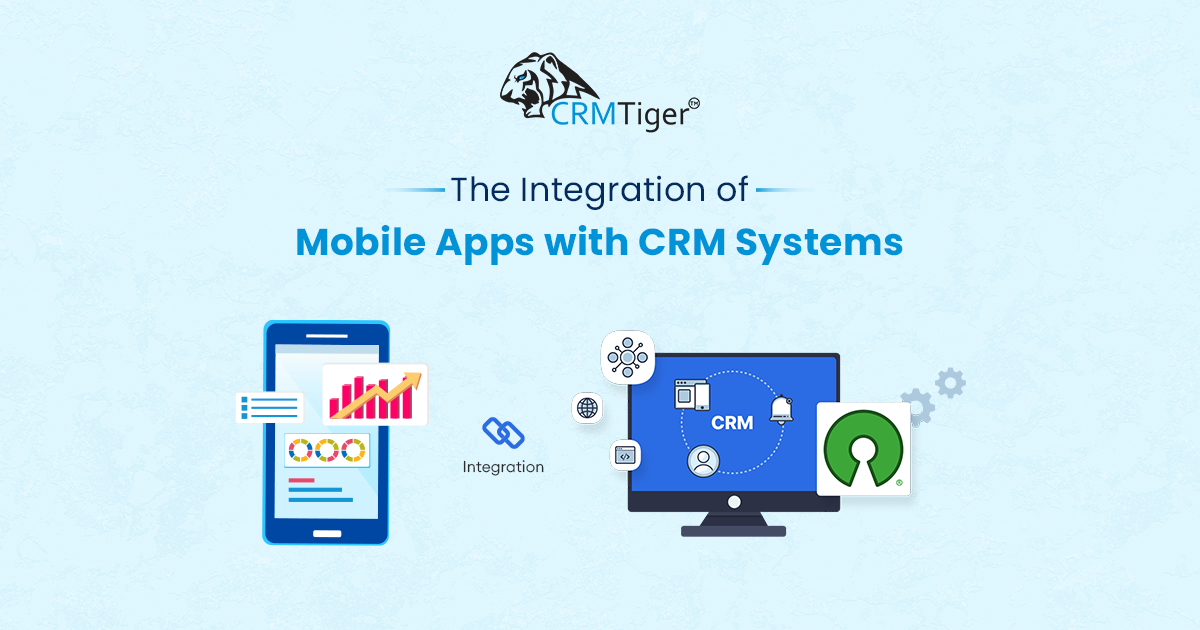
Enhancing Customer Relationships: The Integration of Mobile Apps with CRM Systems:
In today’s fast-paced digital era, businesses are continually seeking innovative ways to streamline operations and enhance customer experiences. One such avenue that has gained significant traction is the integration of mobile apps with Customer Relationship Management (CRM) systems. This dynamic combination offers businesses a powerful tool to engage with customers seamlessly while leveraging valuable insights for personalized interactions. Let’s delve deeper into the significance and benefits of integrating mobile apps with CRM systems.
The Power of Mobile Apps in Customer Engagement:
Mobile apps have revolutionized how businesses interact with their customers. With smartphones becoming ubiquitous, consumers increasingly prefer the convenience and accessibility offered by mobile apps. Whether it’s shopping, banking, or accessing services, mobile apps provide users with instant access to information and functionalities.
Moreover, mobile apps enable businesses to harness various features such as push notifications, location-based services, and in-app messaging to engage with customers proactively. These capabilities facilitate personalized communication tailored to individual preferences, driving customer satisfaction and loyalty.
Maximizing CRM Capabilities through Integration:
CRM systems serve as the backbone of customer-centric operations, enabling businesses to manage interactions, track leads, and analyze data to foster meaningful relationships. By integrating mobile apps with CRM systems, organizations can extend the reach of their CRM functionalities to the fingertips of customers and employees alike.
 Seamless Data Accessibility:
Seamless Data Accessibility:
-
- Integrating mobile apps with CRM systems ensures that customer data is readily accessible across all touchpoints. Whether it’s updating contact information, tracking sales activities, or resolving support tickets, employees can access real-time data on the go, empowering them to deliver timely and informed responses.
 Enhanced Customer Experience:
Enhanced Customer Experience:
-
- Mobile apps integrated with CRM systems enable personalized interactions based on customer preferences, purchase history, and behavioral insights. By leveraging data analytics, businesses can deliver targeted promotions, recommend relevant products or services, and provide proactive support, thereby enhancing the overall customer experience.
 Improved Efficiency and Productivity:
Improved Efficiency and Productivity:
-
- Mobile access to CRM systems streamlines workflows and enhances productivity by enabling employees to perform tasks efficiently from any location. Whether it’s capturing leads, scheduling appointments, or updating records, mobile apps eliminate the constraints of physical boundaries, enabling teams to stay productive on the move.
 Real-Time Insights and Analytics:
Real-Time Insights and Analytics:
-
- Integrating mobile apps with CRM systems facilitates real-time data synchronization, allowing businesses to gain valuable insights into customer interactions and market trends. By analyzing mobile app usage patterns, businesses can refine their marketing strategies, identify emerging opportunities, and make data-driven decisions to drive growth.
Key Considerations for Integration Success:
While the integration of mobile apps with CRM systems offers immense potential, several key considerations are essential to ensure successful implementation:
 User Experience (UX) Design:
User Experience (UX) Design:
-
- Prioritize intuitive and user-friendly design principles to ensure a seamless experience for both customers and employees interacting with the mobile app. Conduct thorough testing across different devices and platforms to optimize usability and functionality.
 Data Security and Compliance:
Data Security and Compliance:
-
- Implement robust security measures to safeguard sensitive customer data transmitted through the mobile app. Compliance with data protection regulations such as GDPR and CCPA is crucial to maintain trust and credibility with customers.
 Integration Flexibility:
Integration Flexibility:
-
- Choose CRM and mobile app development platforms that offer flexible integration capabilities to accommodate evolving business requirements and technological advancements. APIs (Application Programming Interfaces) play a vital role in facilitating seamless data exchange between systems.
 Continuous Monitoring and Optimization:
Continuous Monitoring and Optimization:
-
- Monitor app performance metrics, user feedback, and analytics to identify areas for improvement and optimization. Regular updates and enhancements ensure that the mobile app remains aligned with evolving customer needs and market trends.
Conclusion:
The integration of mobile apps with CRM systems represents a transformative opportunity for businesses to elevate customer engagement, drive operational efficiency, and unlock actionable insights. By harnessing the power of mobile technology and CRM capabilities, organizations can create compelling experiences that foster long-term relationships and sustainable growth in today’s competitive landscape. Embrace this convergence to stay ahead of the curve and deliver exceptional value to your customers.
Hope you found this blog useful.
We would be happy to assist you.
Please contact us on info@crmtiger.com if you needed further help from us.
Let us know if you need more information on this


Leave a Reply